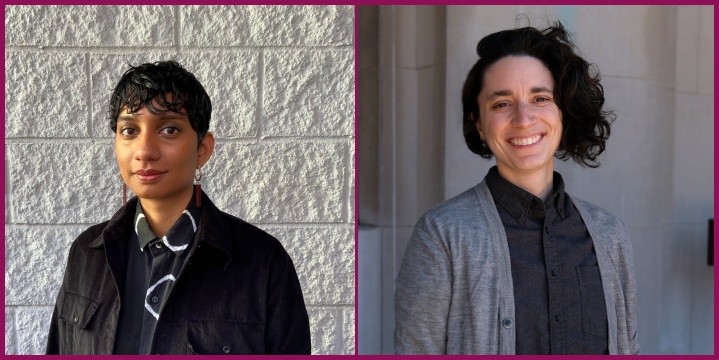Lived Experience in the Classroom
Each semester, the Center compiles a directory of interdisciplinary courses across the University. Exploring the intersections of climate change, history, technology, health, and much more, these classes provide an opportunity for students to break down traditional barriers between fields of study to approach topics in a holistic and innovative manner. Many of these courses highlight the lived experience of individuals and groups historically underrepresented in the Western narrative taught in U.S. universities. Today, we feature two new courses taught by postdocs in the Center: “Unsettling Science: An Introduction to Science, Technology, and Society” taught by Madi Whitman, and “Climate Change and Colonialism” taught by Dilshanie Perera.
This semester, the Center will continue to explore the topic of lived experience throughout our news features. With this in mind, we asked Drs. Whitman and Perera about how lived experience will play a part in their courses’ teachings.

HIST 2972: Unsettling Science | Madi Whitman
An introductory course in science and society is being offered for the first time this semester: HIST 2972 Unsettling Science, taught by our Postdoctoral Research Scholar and Assistant Director of Curriculum Development, Madisson Whitman. This course is an introduction to the interplay between science and society. Unsettling Science invites students to ask big questions about science, interrupt preconceived ideas about what science is and who does it, and engage deeply with troubling social implications. By offering historical and contemporary perspectives, this course equips students with critical and methodological skills essential to exploring not only longstanding questions about the world but also urgent issues of our time. To do so, the course focuses on a series of fundamental questions that underpin the study of science and society from a variety of interdisciplinary perspectives. Whitman writes:
“Lived experience shows up in Unsettling Science most immediately in questions about where knowledge comes from, what qualifies as knowledge, and who gets to know. We'll explore a variety of perspectives, some of which include lived experience in the form of ethnographic accounts that trouble what counts as scientific evidence. Students are also invited to draw on their own lived experience, especially the ways in which their positionalities affect the lenses through which they interact with the world. One of the aims of Unsettling Science, and one aspect of what "unsettling" means, is to shake up the idea of science as having an omniscient, objective "view from nowhere," and thinking about lived experience as a source of knowledge helps us do this.”
ANTH 3703: Climate Change and Colonialism | Dilshanie Perera
Our ACLS Emerging Voices Fellow and Climate Humanities Fellow Dilshanie Perera is also teaching a new course this semester called Climate Change and Colonialism. This interdisciplinary seminar features an anthropological and historical exploration of the specificities of colonial regimes’ extractive violence against people, land, and resources. The course will see how climate change is intensified through unequal social, political, and economic distributions of harm and advantage, and how climate vulnerability is created and maintained. The goal of the course is to provide students with conceptual tools for historicizing climate change, and for critically engaging the consequences of colonial relations of power. On the topic of lived experience, Perera wrote:
“Over the semester, students will examine various aspects of the lived experience of the climate crisis through interdisciplinary scholars and researchers, as well as first-hand accounts, including their own stories. One goal of the course is to analyze how past and ongoing systems of colonial extraction, dispossession, and settlement create the contemporary lived experience of the climate crisis and global inequalities. Students will also analyze reparative methods in the struggle for climate justice.”
